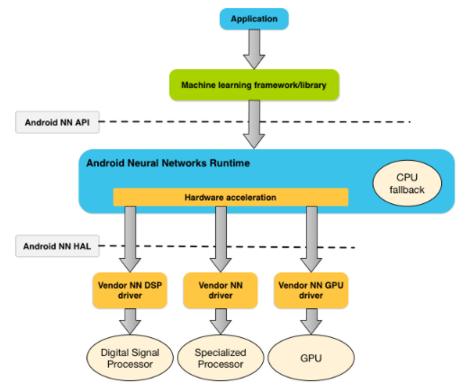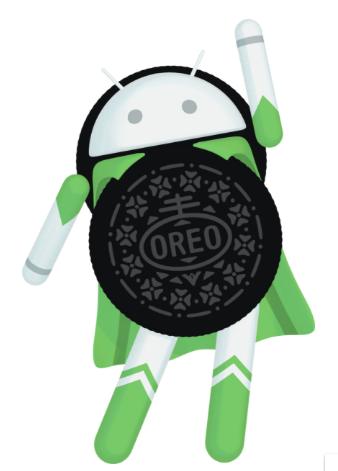| Android 8.1 Introduces Neural Networks API |
| Written by Lucy Black | |||
| Thursday, 26 October 2017 | |||
|
Google has released the first developer preview of Android 8.1. It includes a new Neural Networks API to accelerate on-device machine intelligence and optimizations for Android Go, as well as smaller enhancements to Oreo resulting from user and developer feedback.
The Neural Networks API (NNAPI) is part of Google's efforts to bring machine intelligence to Android. It is an Android C API designed for running computationally intensive operations by enabling hardware-accelerated inference operations on supported devices. As such it is intended to provide a base layer of functionality for higher-level machine learning frameworks that build and train neural networks. This is where another piece of news comes in. Google will be bringing us TensorFlow Lite, which it describes as its upcoming cross-platform ML framework for mobile. NNAPI supports inferencing, such as classifying images, predicting user behavior, and selecting appropriate responses to a search query, by applying data from Android devices to previously trained, developer-defined models. Among its claimed benefits are:
NNAPI is meant to be called by machine learning libraries, frameworks, and tools that let developers train their models off-device and deploy them on Android devices. Apps typically would not use NNAPI directly, but would instead directly use higher-level machine learning frameworks which in turn could use NNAPI to perform hardware-accelerated inference operations on supported devices. Its high-level system architecture is given in this diagram:
Other major features relate to Android Go - the version of Oreo, announced at Google I/O in May 2017, that is a lightweight Android capable of operating with only 1 GB, or even 512 MB, of RAM. As well as memory optimizations, Google has added two new hardware feature constants: FEATURE_RAM_LOW FEATURE_RAM_NORMAL to allow devs to target the distribution of apps and APK splits to normal or low-RAM devices running Android 8.1 and later. Other new features in Android 8.1 include:
This initial preview is a beta quality release in which the new APIs are already final and, according to its overview, is suitable for daily use by developers and early adopters. A second preview with near-final system images for final testing will be released in November, with the final release expected in December. More InformationRelated ArticlesSpectacular Launch For Android Oreo Android Instant Apps Updates API Android Gets Architecture Components Kotlin Begins Its Takeover Of Android
Comments
or email your comment to: comments@i-programmer.info |
|||
| Last Updated ( Wednesday, 15 November 2017 ) |




